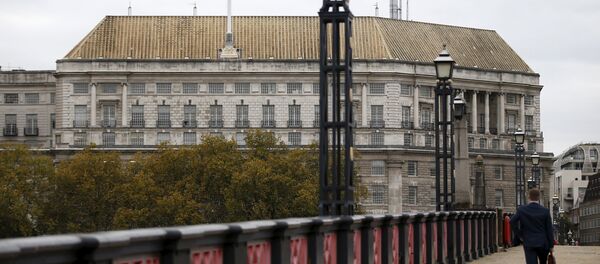According to Magnus Ranstorp, a senior researcher of the Swedish National Defense College, the UK has always been at risk of a terror attack.
"There has been a constant terrorist threat across Britain, and the second highest level of emergency preparedness has been established in recent years. However strange it may sound, yesterday's attack was actually expected," Magnus Ranstorp told Swedish national broadcaster SVT.
Magnus Ranstorp gave credit to the UK's anti-terrorist measures, stressing the fact that at least one terrorist attack of similar proportions has been prevented each year since the series of coordinated attacks in London in July 2005. Scotland Yard has 1,700 employees and maintains a well-developed strategy for detecting and preventing terrorism, Ranstorp pointed out. According to him, about 200 people have been jailed for terrorist involvement in the UK over the past years. Some of them, however, have served their punishment and have been released.
According to Ranstorp, the UK also benefited from the advantage of not participating in the Schengen cooperation, unlike other EU member states. The UK admittedly had an easier task of following suspected terrorists in and out of the country. However, about 800 British nationals have participated in the war in Syria, of which about 400 have returned and are expected to have exacerbated the risk of Islamist terrorism in the country.
Swedish terror researcher Hans Brun of King's College in London agreed that jihadist circles are the most likely suspect behind the blast. He also noted that that major arenas were easy targets, because they attracted large crowds. He also ventured that the deceased terrorist may have selected the concert venue because it had less security controls than the arenas where Manchester's two world-known football teams play.
"It is quite a well-known fact that large crowds are attracting this kind of risk, especially when people are leaving. There seem to have been security checks upon entrance, but it also seems to have been easy for the perpetrator to simply wait outside," Hans Brun told SVT.
According to Brun, this tactic is nothing new and is quite common in Africa and the Middle East. "The security of arenas can never reach 100 percent," he pointed out.
Never miss a story again — sign up to our Telegram channel and we'll keep you up to speed!




